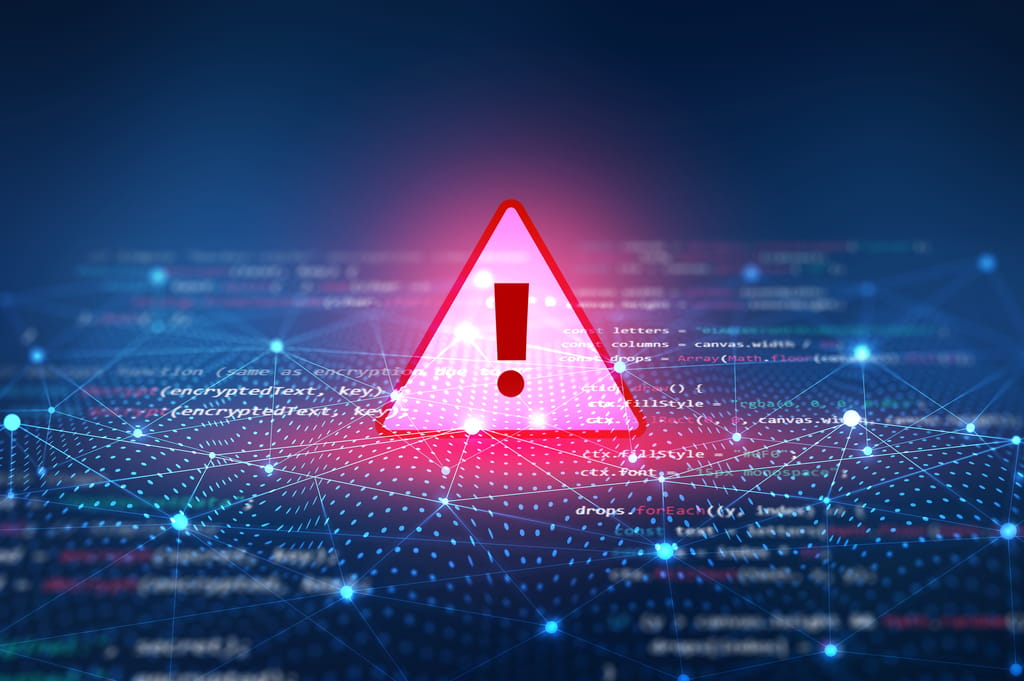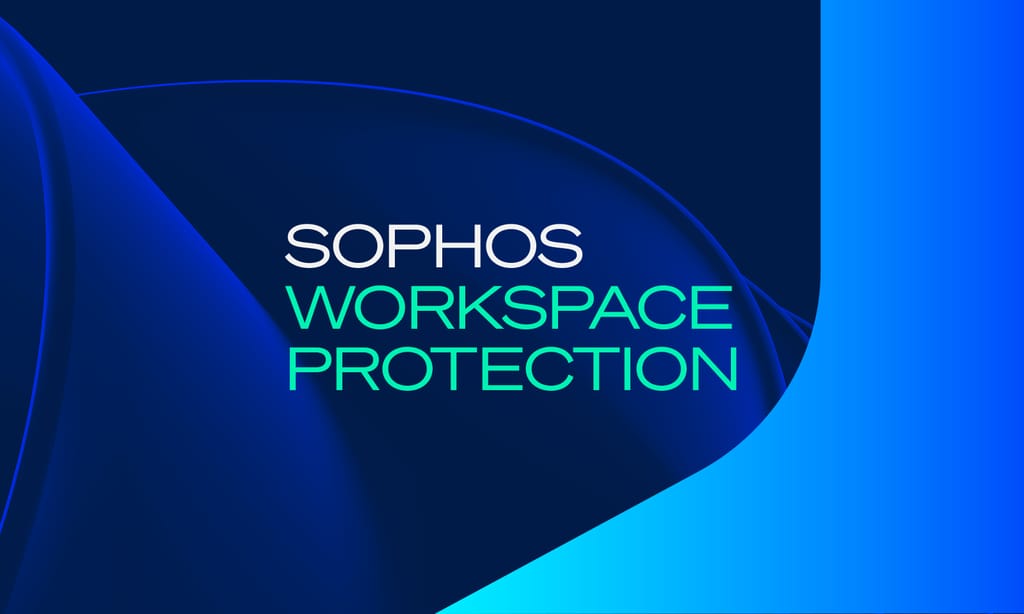
What is endpoint management?
Every enterprise network has users and, therefore, connected devices that require endpoint management. Endpoints like laptops, desktops, smartphones, tablets, and IoT devices are common entry points for cyberattacks. Effective endpoint management and endpoint security must work together to ensure that security policies are enforced and remain in compliance with regulatory mandates, approved endpoints are receiving proper and timely software updates, and antivirus programs are in place to protect against threats like malware, ransomware, and phishing attacks. Read on to learn more about endpoint management, how it works, and why it’s more important than ever.
About Endpoint Management
Endpoint management is efficiently managing and maintaining all connected devices within an organization. The primary goals of endpoint management are to provide the following:
- Security: The right endpoint management strategy helps protect all connected endpoints from security threats such as malware, viruses, ransomware, and unauthorized access. Endpoint management solutions typically include antivirus, anti-malware, and firewall components.
- Regulatory Compliance: Endpoint management is responsible for enforcing the organization's IT policies and compliance standards across endpoints, such as GDPR and other data privacy regulations.
- Configuration Management: Managing and maintaining endpoint configurations ensures that devices are set up properly and are consistent with organizational standards. Timely configuration management keeps devices up-to-date with patches, updates, and security configurations.
- Inventory Management: A key component of endpoint management is the visibility of all devices. That means tracking and managing hardware and software assets across the organization, including keeping records of installed applications, licenses, and hardware specifications.
- Remote Support and Troubleshooting: With endpoint management, IT administrators can remotely diagnose and resolve issues on endpoints, reducing the need for physical visits to end-user locations. This is more relevant than ever as remote work continues to rise.
- Software Deployment: Endpoint management streamlines deploying and updating software applications on connected endpoints.
- Software Patch Management: Operating systems and software applications on endpoints are kept up-to-date with the latest security patches and updates.
- Security Monitoring and Reporting: A major aspect of endpoint management is continuously monitoring the health and performance of endpoints and providing detailed reports on their status and compliance.
Administrators can implement endpoint management solutions through various tools and technologies, such as Mobile Device Management (MDM), Enterprise Mobility Management (EMM), Unified Endpoint Management (UEM), and Client Management Tools. These solutions are critical in modern organizations where employees use various devices to access corporate resources and data, as they help maintain security and control over the IT environment.
Why is Endpoint Management Important?
Endpoint management is important because it enhances security, compliance, and efficiency while also providing cost savings, support for remote work, and various other benefits for organizations of all sizes. It is a critical component of modern IT management and helps ensure that an organization's endpoints are secure, up-to-date, and optimized for performance.
Endpoint management is important for several reasons, especially in the context of modern IT environments. Here are some other reasons why endpoint management is essential:
- Patch Management: Regular software updates and security patches are essential for addressing vulnerabilities and fixing bugs. Endpoint management enables IT teams to centrally deploy and manage these updates to keep endpoints secure and up to date.
- IT Efficiency: Effective endpoint management can improve IT department efficiency by automating routine tasks like software deployments, configuration changes, and troubleshooting. Endpoint management reduces IT staff's workload and allows them to focus on more strategic initiatives.
- Cost Savings: Endpoint management can lead to cost savings by reducing downtime due to security breaches and minimizing the time and effort required for manual maintenance and support. Centralized management also helps in tracking hardware and software inventory, making it easier to manage licenses and reduce unnecessary expenditures.
- Remote Work Support: With the rise of remote work and the need for flexible IT solutions, endpoint management becomes critical. It enables IT teams to support and secure remote devices, ensuring that employees can work from anywhere while maintaining security and productivity.
- Data Protection: Endpoint management can include features like data encryption and remote data wipe capabilities. This helps protect sensitive data on devices in case they are lost or stolen, safeguarding the organization's information.
- Asset Management: Endpoint management provides visibility into an organization's hardware and software assets. This helps in tracking and managing inventory, ensuring that assets are utilized efficiently and are not over or under-allocated.
- Performance Optimization: Managing endpoints includes monitoring system performance and troubleshooting issues that may affect productivity. Proactive performance optimization can lead to better user experiences and reduced support requests.
- Disaster Recovery: In case of a disaster or data loss event, having a comprehensive endpoint management strategy in place can help with data recovery and system restoration, minimizing downtime and data loss.
- Scalability: As organizations grow or their IT infrastructure evolves, endpoint management solutions can scale to accommodate additional endpoints and changing requirements, ensuring that management remains effective and efficient.
How is Endpoint Management Different from Endpoint Security?
Endpoint management and endpoint security are two distinct but closely related concepts in the realm of IT and cybersecurity. They both focus on endpoints. However, they serve different purposes and have different goals.
Endpoint security’s purpose is to protect endpoints from security threats and vulnerabilities. It focuses on safeguarding devices and the data they access or store from a wide range of cyberattacks and unauthorized access.
Endpoint management’s purpose is slightly different. It primarily focuses on efficiently and effectively managing and maintaining endpoints within an organization. It encompasses tasks related to these devices' configuration, deployment, monitoring, and maintenance.
The key functions of endpoint management are:
- Configuration: Setting up and configuring devices with the necessary software, applications, and settings.
- Deployment: Ensuring the proper and consistent deployment of devices across an organization.
- Inventory and Monitoring: Tracking and managing the inventory of endpoints, monitoring device performance, and collecting data on device health and usage.
- Patch and Software Updates: Managing and distributing software updates and patches to keep devices up-to-date and secure.
- Remote Control: Enabling remote access and control of endpoints for troubleshooting and maintenance purposes.
In practice, both endpoint management and endpoint security are essential for a comprehensive IT and cybersecurity strategy. Endpoint management ensures that devices are configured and operating optimally, which can help enhance security, while endpoint security safeguards these devices and the data they handle. Organizations often integrate both endpoint management and endpoint security solutions to ensure a well-rounded approach to endpoint protection and maintenance.
What Are Some Endpoint Management Best Practices?
Endpoint management refers to the administration and monitoring of end-user devices such as computers, smartphones, and tablets in an organization. Implementing best practices for endpoint management is crucial for ensuring security, efficiency, and compliance. Here are some endpoint management best practices:
- Centralized Management: Utilize endpoint management tools and solutions that allow you to manage all devices from a central console. This provides better visibility and control over the entire fleet.
- Security Policies: Implement and enforce security policies on endpoints, including password complexity, encryption, and firewall settings. Define rules for antivirus and anti-malware software.
- Access Control: Limit user privileges and access rights on endpoints. Users should only have access to the resources required to perform their jobs, and administrative access should be restricted.
- Device Encryption: Enforce full disk encryption on laptops and mobile devices to protect data, especially for those used outside the office.
- Remote Monitoring and Management (RMM): Use RMM tools to remotely monitor and manage endpoints. This is particularly useful for troubleshooting issues and providing support.
- Mobile Device Management (MDM): If your organization uses mobile devices, implement MDM solutions to manage and secure them, including features like remote wipe and app management.
- User Training and Awareness: Educate end-users about security best practices, such as recognizing phishing attempts and understanding the importance of software updates.
- Endpoint Compliance: Regularly audit endpoints for compliance with security policies and configurations. Non-compliant devices should be brought into compliance promptly.
- Endpoint Lifecycle Management: Keep track of the lifecycle of endpoints, and plan for their retirement and replacement as they age. Outdated hardware and software can pose security risks.
- User Behavior Analytics: Implement tools and solutions that can analyze user behavior on endpoints to detect unusual or suspicious activities.
- Incident Response Plan: Develop and regularly test an incident response plan for addressing security breaches or endpoint-related incidents.
- Monitoring and Alerts: Set up monitoring and alerting systems to detect and respond to anomalies, security threats, and performance issues.
- Regular Audits and Reporting: Conduct regular audits to assess the health, security, and performance of endpoints. Generate reports to track changes and improvements over time.
- BYOD (Bring Your Own Device) Policy: If your organization allows employees to use personal devices for work, it's vital to establish clear BYOD policies to ensure security and compliance.
- Multi-Factor Authentication (MFA): Implement MFA on endpoints to enhance security, especially for remote access and cloud-based services.
- Data Loss Prevention (DLP): Use DLP solutions to monitor and prevent the unauthorized sharing or leakage of sensitive data from endpoints.
Endpoint management best practices can vary depending on the specific needs and industry of an organization, so it's essential to tailor your approach to your unique circumstances. Regularly reviewing and updating your endpoint management strategy is crucial to adapting to evolving threats and technology changes.
Can Endpoint Management be Outsourced?
Yes, endpoint management can be outsourced to third-party service providers. Many businesses choose to outsource this function for various reasons, including cost-effectiveness, expertise, and the ability to focus on their core business activities.
Here are some key benefits to consider when outsourcing endpoint management:
- Cost Savings: Outsourcing endpoint management can often be more cost-effective than hiring and maintaining an in-house team of IT professionals. Service providers can offer flexible pricing models that align with your specific needs.
- Expertise: Certain managed service providers (MSPs) and cybersecurity providers specialize in endpoint management and have skilled professionals with experience in handling various endpoint devices, security, and compliance. They can often provide better expertise than an in-house team.
- Scalability: The right service provider can scale their services up or down according to your organization's needs, which is especially beneficial if your company experiences fluctuations in its endpoint management requirements.
- Focus on Core Business: Outsourcing endpoint management allows your organization to concentrate on its core business activities rather than dealing with IT infrastructure and device management.
- Access to Advanced Technology: Third-party security providers usually stay updated with the latest technologies and security measures, ensuring that your endpoints are using the most current and secure solutions.
- 24/7 Support: Many cybersecurity as a service providers offer round-the-clock support via a security operations center (SOC), ensuring continuous endpoint monitoring and assistance.
- Compliance and Security: Outsourcing endpoint management can help ensure that your devices and network are compliant with industry regulations and secure against cybersecurity threats.
When considering outsourcing endpoint management, it's important to select a reputable and reliable service provider. Evaluate potential providers based on their track record, service level agreements (SLAs), security measures, and the specific needs of your organization.
Related security topic: What is endpoint detection and response?
.svg?width=185&quality=80&format=auto&cache=true&immutable=true&cache-control=max-age%3D31536000)


.svg?width=13&quality=80&format=auto&cache=true&immutable=true&cache-control=max-age%3D31536000)



